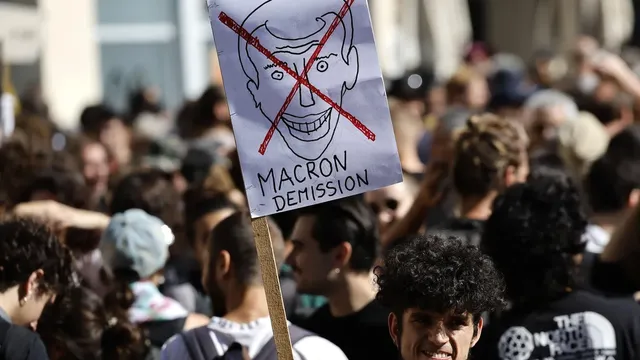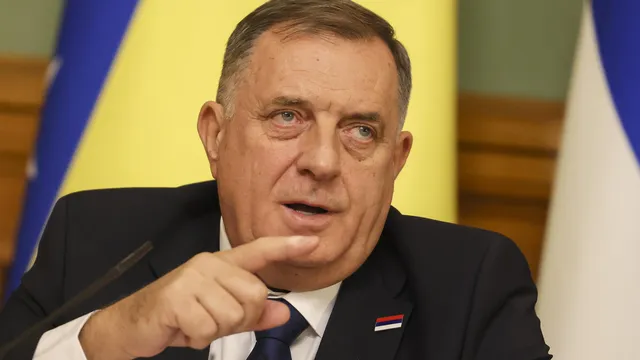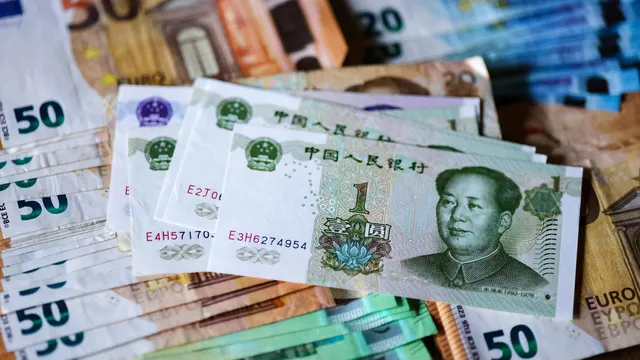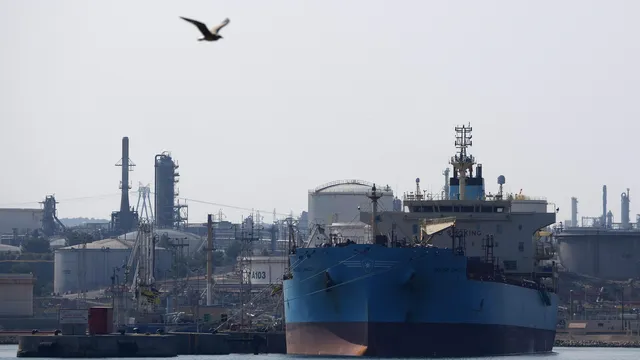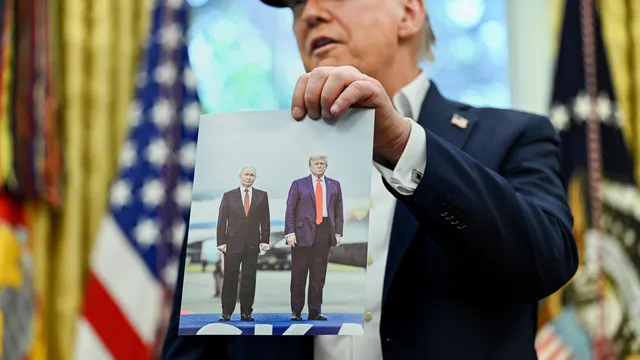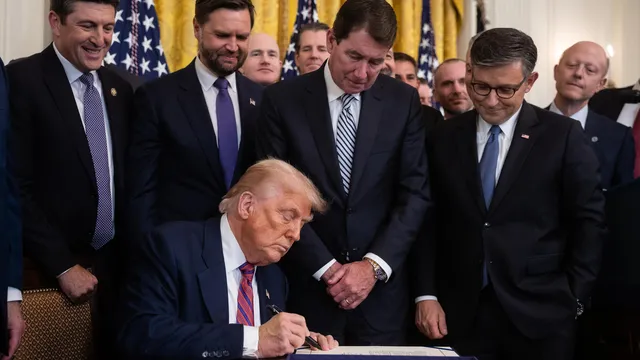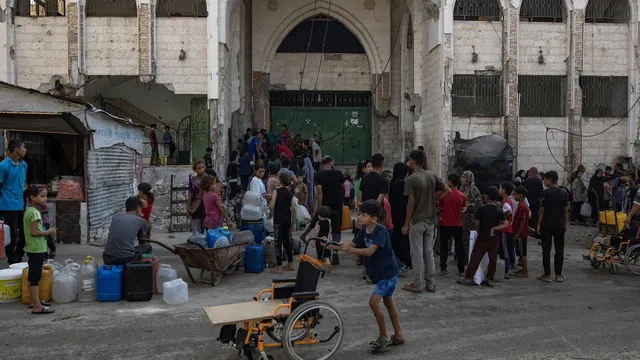France's political crisis and fiscal irresponsibility are undermining confidence in it among its European partners. In parliament, the centrist group "Renew Europe" is struggling to come to terms with the loss of its role as a decisive factor, writes Le Figaro journalist Florent Collot in his analysis.
When the European Commission launched the ratification process for the trade agreement with Mercosur (the South American trade bloc) on September 3, the group (Renew Europe) in the European Parliament quickly welcomed this "excellent, long-awaited opportunity for the European Union" in a statement. Moments later, however, Pascal Canfin, a member of the same group and a close associate of Emmanuel Macron, presented a cross-party initiative aimed at having it temporarily suspended by the EU Court of Justice. The centrist (formerly liberal) group in the European Parliament is not the only one divided over the controversial free trade agreement with four Latin American countries, which has been under discussion for a quarter of a century. But it is the most divided. Two-thirds of its elected representatives are in favor, while the French delegation, initially opposed, is now trying to follow the Élysée Palace's wavering line on the issue.
This is just one illustration of the weakening of the Macronists' positions in Brussels and Strasbourg. After the 2024 European elections, the centrist group is struggling to find its place in Parliament, reflecting Emmanuel Macron's declining influence on the European stage. The ongoing political crisis in France and the budgetary incompetence of its short-lived governments since the dissolution offer its European partners a spectacle that is both sad and disturbing. "Emmanuel Macron's promise was to strengthen Europe. His legacy will be its weakness: you cannot build a strong Europe with weak countries," says Dirk Gotink, a Dutch MEP from the European People's Party (EPP, right). The enthusiasm generated in 2017 by Emmanuel Macron's grandiose speeches on European sovereignty and strategic autonomy has faded. "These grandiose words sound unconvincing in the face of France's dependence on the financial markets for loans," the elected official continues.
Using his influence on the continent, Macron attempted to replicate the same takeover of the European Parliament that he had achieved on the French political scene, believing he could break down the traditional division between right and left. These ambitions were shattered by his defeat in the European elections on June 9, 2024, which led to the hasty dissolution of the National Assembly, plunging France into endless instability. The Renew Europe group lost nearly a quarter of its members, falling to fifth place in the European Parliament (where it had previously been third), with 77 MEPs. Its first delegation, made up of French members ("Europe Together"), lost 10 seats, reduced to 13 elected members loyal to the head of state, such as Valérie Ayrault, who chairs the group, and those close to Édouard Philippe (Nathalie Loiseau, Gilles Boyer) or François Bayrou in MoDem (Marie-Pierre Vedrenne, Christophe Grudler).
This withdrawal did not prevent Renew Europe from contributing to the re-election of Ursula von der Leyen as Commission President a year ago and continuing to be considered one of the pillars of her majority, alongside the European People's Party (EPP) and the Social Democrats. Over the past year, however, the group has repeatedly been sidelined by Manfred Weber, the influential leader of the EPP, during votes on issues such as immigration and climate legislation. To avoid having to seek compromises with its traditional allies in the center and on the left, it has repeatedly attempted to cozy up to far-right parties in Parliament. With each betrayal, the socialists and centrists raised their voices without resorting to confrontation. A year ago, Valerie Ayer obtained the German's signature on a joint declaration of a page and a half, which she called a "coalition agreement."
A year later, the reality check is harsh. Manfred Weber does not feel bound by any agreement and says he is free to continue voting with other parties on a case-by-case basis. An approach that, according to him, reflects the vote cast by voters in 2024. According to Dirk Gotink, Macronists are seeking refuge in nostalgia for their lost influence in order to lecture others on morality, especially the EPP, accused of conspiring with anti-European extremists. Valérie Ayrault is struggling to cope with the loss of Renew Europe's central position as a determining factor. And she turns to Ursula von der Leyen, as she did again last week during the Commission President's State of the Union address. "We need you because for weeks, months, I have been struggling to hold the two flanks of your majority together so that it can be preserved and we can move forward," she appealed in the Strasbourg chamber. A "moment of truth" presented as a last chance to confirm the tripartite European common ground. But the EPP and the Socialists seem more than ever on the verge of collapse, threatening to turn the centrists into the fifth wheel of the European cart.
France struggles to make its voice heard
During heated meetings in early summer, elected representatives of Renew Europe sharply criticized this strategy. Valérie Ayrault reorganized, replacing Marie-Pierre Vedrenne, who was not bothered by internal criticism, with Laurence Fareng as head of the French delegation. "At some point, we have to accept that we lost the 2024 elections," sighed a French MEP from Renew Europe.
With regard to Mercosur, as well as the trade agreement concluded this summer with Donald Trump, which provides for 15% unilateral tariffs, France is struggling to get its way. Emmanuel Macron found himself isolated among his colleagues, the only one seeking to establish a balance of power with the American president, while Ursula von der Leyen succumbed to pressure from Friedrich Merz, Giorgia Meloni, and others to avoid escalation at all costs. It is as if Angela Merkel's former minister, whom she promoted to head of the European executive, stopped listening to her at the key moment a year ago when she was reappointed for a second term and the head of state lost control of French politics.
Jordan Bardella, chairman of the Patriots for Europe group in the Strasbourg parliament, has no problem denouncing the Commission's "double humiliation" of "Europe's second-largest economy." In fact, while Ursula von der Leyen provoked Macron's anger by going to Montevideo to conclude the Mercosur agreement in December, she postponed the start of its ratification by several months, giving herself time to negotiate an additional protocol with France providing safeguards to address farmers' concerns, despite pressure from the majority of member states to ratify it as quickly as possible.
Valérie Ayrault still wants to believe in "the leadership of France and Emmanuel Macron on the European stage," without ignoring the "concerns about the political situation" in the country expressed by her colleagues in parliament. "France is not the only country in Europe facing a fragmented majority; it is time for it to start negotiating compromises, like other countries," says the president of the Renew Europe group. "I don't believe in these experiments with majority-free government; we tried it in Italy," said Nicola Procaci, a member of Giorgia Meloni's Brothers of Italy party and co-chair of the Conservatives and Reformists group in the Strasbourg parliament. "This is a problem for Europe because France is a big country."
Europe's "sick man"?
Is France the new "sick man" of Europe? "The fact that Italy has become more stable than France is worrying," warns Dirk Gotink. More than political fragmentation, a phenomenon that knows no borders, it is the changed situation in public finances that is causing concern. This is not inevitable: Italy, Greece, Portugal, and Spain have shown determination to restore order to their finances. Conversely, the collective lack of will on the part of the French political class is beginning to undermine confidence in the country in Brussels and other capitals. "We cannot just wait for the next crisis without doing anything," warns the Dutch representative.
And when, in the name of budgetary efforts, the centrists adopt the rhetoric of the Europhobes, the misunderstanding in European circles reaches its peak. Before his fall, François Bayrou mentioned reducing France's contribution to the EU budget, a demand of the "National Rally." Accepted in Matignon as part of the former prime minister's consultations with the parties, Socialist MEP Nora Mebarak raised the issue. "He replied that we must send the French a signal against Europe, while acknowledging that we need the funds from the Common Agricultural Policy and cohesion. We missed the opportunity to remain silent." I BGNES

 Breaking news
Breaking news
 Europe
Europe
 Bulgaria
Bulgaria
